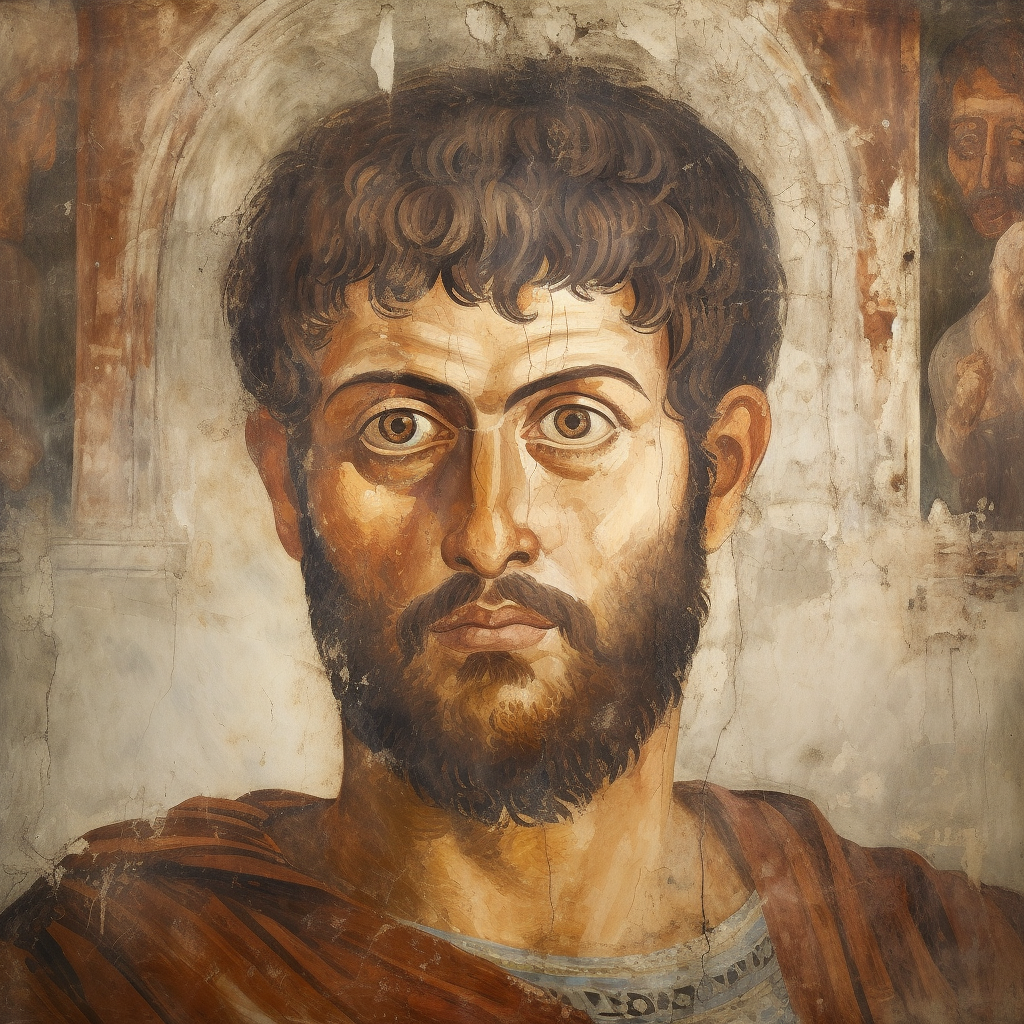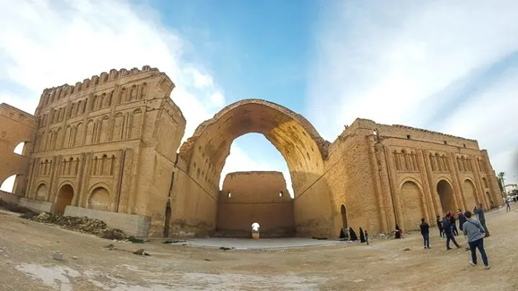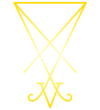Damascius
Philosopher

Damascius (ca. 462 – 538 CE) was a Neoplatonic philosopher, often referred to as the “last of the Athenian Neoplatonists”. He dedicated much of his life to preserving and reestablishing Neoplatonism and Pagan philosophical traditions, especially during a time when Christianity was rising in prominence. Beginning with his study in Rhetoric and ultimately transitioning into Philosophy, Damascius became a central figure in defending the intellectual and spiritual heritage of the ancient world. As the final philosopher in the “Golden Chain” of Neoplatonic thinkers following Iamblichus (traditionally), he sought to carry the torch of Neoplatonic illumination in an increasingly Christianized world. This work will explore Damascius' origins and character, his intellectual career despite consistent persecution, his philosophical accomplishments, and the lasting impact of his teachings on spiritual academia.
THE YOUNG PHILOSOPHER
Damascius, as his name suggests, was born in Damascus in the early 460s. At that time, Damascus was a flourishing and sophisticated metropolis, situated just off the Mediterranean in the eastern desert. The city blended Aramaic, Nabatean, and Hellenic traditions, which were reflected in Damascius himself, his desire for intellectual freedom, his attachment to his Aramaic homeland where he eventually settled, and his proficiency in Platonism. In his 20s, Damascius left his home for Alexandria, where he studied rhetoric at the renowned school of Horapollo, an exclusive institution for both Christian and Pagan alike. During his time there, Damascius encountered many philosophers, one of whom being his future mentor, Isidore, who was already impressing his students with his spiritual gifts.
In the early 480s, tensions between Pagans and Christians within the school began to escalate, particularly following the revolt of Illus against Emperor Zeno (484–488) and the perceived religious scandal involving the Lady Isis (Astarte), as seen by the Christians. This conflict led to Christians committing grave sacrilege against Lady Isis, followed by an anti-Pagan campaign that eventually attracted an imperial envoy from Constantinople, Nicomedes, to investigate the school for its Paganism. Horapolla was arrested, tortured, and forced to convert to Christianity; it is after this that Damascius and Isidore decided to leave for Athens, where religious freedom appeared to be flourishing.
Damascius and Isidore journeyed for a total of eight months, and it was during this time that Damascius fully embraced the philosophical tradition, abandoning rhetoric. About twenty-five years
later, Damascius reflected on his past views of rhetoric in his “Philosophical History,” saying: “How pernicious an activity rhetoric was, focusing all my
attention on the mouth and the tongue, and turning away from the soul and the blissful, divine lessons that purify…”
Damascius’ conversion was caused by a variety of
experiences. One notable stop was in the town of Bostra, where they were welcomed by the Aristotelian philosopher Dorus, who showed them many of the holy sites in Hauran. Among these was the
waters of the Styx in the Upper Yarmuk Valley, which filled Damascius with religious awe. Furthermore, Damascius witnessed Isidore convert Dorus to Plato’s lofty wisdom. Eventually, Dorus
abandoned his residence and set off with the two men on their travels.
Adding further credibility to Damascius' decision to pursue philosophy, the three men arrived in Aphrodisias, where they were greeted by Asclepiodotus, Isidore's former mentor. Asclepiodotus took them on numerous excursions around Aphrodisias and even as far as Hierapolis. The three often returned with tales of miraculous experiences. After further Pagan pilgrimages through Ephesus, Samos, and Piraeus, Damascius and his companions finally arrived in Athens. Upon being accepted as a student at the Academy in Athens, then a leading Neoplatonic center, Damascius quickly rose to prominence and assum ed the Platonic succession as leader of the school (diadoche) around 515 (maybe as early as 500).
DIADOCHE
Damascius, during his role as diadoche, completely reformed the academy on an institutional and scholastic level. The reformations were inspired by a desire for the Academy (which had been deteriorating for several years) to return to its founders’ teachings, Plato and its second founder Iamblichus. In time, he assembled the greatest philosophers from all over the Hellenic world and wished for philosophy to be imparted to the best few, and for the worship of the holy for all. Athens was again, the theological and philosophical hub, and its influence was so dramatic that in 529, an imperial decree by Emperor Justinian demanded the immediate suspension of all Pagan activity.

Though Damascius was no stranger to Christian persecution, he recognized that it was necessary to relocate. Along with six other philosophers, he made his way to Ctesiphon, hoping that the Persian king, Khosrow (Chosroes), would be more tolerant of the old ways. Indeed, Khosrow accepted these wise men, but it soon became clear to Damascius that Ctesiphon was not the ideal refuge they had hoped for. The philosophers then decided to travel to Harran, but not before Damascius persuaded the Persian king to include a clause in the "Eternal Peace" treaty with Justinian, granting them religious freedom for the rest of their lives. Harran, protected by Persian authority, is thought to have been where Damascius and the others may have re-established the Academy, especially considering evidence of its pagan climate that persisted until the 9th or 11th century. It was in Harran (debated), in his homeland of Syria, where Damascius died, living comfortably until the end of his days.
Now that a brief description of his life from start to finish has been shown, it is necessary to go further into detail the character of Demascius, specifically referencing his major work, The Philosophical History.
This work is unique in that it serves a triple function: history, philosophy, and idealism. It delves into a wide range of topics and, much like Plato’s Republic, seeks to define the ideal philosopher with respect to its tripartite nature. Damascius not only offers historical accounts of various philosophers and events, but also provides critiques of his predecessors, particularly those of Proclus. He criticizes many of the men he encountered in his life or knew about. For instance, he writes:
I have chanced upon some who are outwardly splendid philosophers in the multitude of views treasured in their rich memory; in the wondrous quickness of their crafty syllogisms; in constant assest of their extraordinary power of perception; yet inside, in things of the soul, they are poverty-stricken and lacking in true knowledge.1
Likewise, Simplicius, a student of Damascius, remarks that Damascius obsessively followed the tradition before Syrianus and Proclus, continuing in the tradition of Iamblichus rigidly than Syrianus and Proclus did:
Ascelpiodotus, the best of Proclus’ pupils, and our Damascius. The first delighted in new ideas because of his extraordinary intelligence; as for Damascius, he did not hesitate to oppose many of Proclus’ doctrines because of his taste for hard work and also his appreciation of Iamblichus’ theories.2
As mentioned earlier, when Damascius became the diadochus (successor), he reformed the Academy. Part of this reformation included his refutation of Proclus' interpretation, which Damascius believed overlooked the true Platonic doctrine. Thus, he took on the responsibility, as the spiritual heir, to rehabilitate the authentic teachings of Iamblichus.
Damascius, unsurprisingly, harbored a deep disdain for Christianity and its followers. He was especially critical of those who converted to Christianity, viewing them as having abandoned the
true philosophical path. He held in high regard those who, even under the threat of torture, remained steadfast in their beliefs, such as his own son, who "was beaten
with rods but did not
utter a word."
Similarly, Damascius expressed a similarly harsh sentiment toward a philosophical hermit who was unwilling to fight, viewing such passivity as a weakness:
Men tend to bestow the name of virtue on a life of inactivity, but I do not agree with this view. For the virtue which engages in the midst of public life through political activity and discourses fortifies the soul and strengthens through exercise what is healthy and perfect, while the impure and false element that lurks in human lives is fully exposed and more easily set on the road to improvement. And indeed politics offers great possibilities for doing what is good and useful; also for courage and firmness. That is why the learned, who sit in their corner and philosophise at length and in a grand manner about justice and moderation, utterly disgrace themselves if they are compelled to take some action. Thus bereft of action, all discourse appears vain and empty.
Clearly, Damascius was not merely a man of theory, but also of action. This is evident in his attitude on how even spiritual men should conduct themselves.
All things considered, Damascius was a unique and influential figure in the history of philosophy, earning the title of “The Last Athenian Neoplatonic Philosopher.” He remained steadfast in his commitment to what he believed to be the true and holy, serving as a model for future philosophers, much as he looked to Plato and Iamblichus for inspiration. Some of his works have survived to this day, preserving his philosophical insights. Despite facing the rising tide of religious and intellectual challenges, he persevered and left a lasting impact on the course of history. May his legacy continue to be remembered and respected for generations to come.
BIBLIOGRAPHY
1Philosophical History, Damascius
2Commentary on Aristotle’s On the Heavens, Simplicius of Cilicia
Athanassiadi, Polymnia, DAMASCIUS THE PHILOSOPHICAL HISTORY. Apamea Cultural Association, 1999.
Athanasiadi, Polymnia, Persecution and Response in Late Paganism: The Evidence of Damascius. The Journal of Hellenic Studies, 1993.
Damascius, Problems and Solutions Concerning First Principles, trans. Sara Ahbel-Rappe. Oxford University Press, 2010.
CREDIT:
Goldenxchild

 አማርኛ
አማርኛ العربية
العربية বাংলা
বাংলা Български
Български 中文
中文 Čeština
Čeština Dansk
Dansk Deutsch
Deutsch Eesti
Eesti Ελληνικά
Ελληνικά Español
Español Français
Français हिन्दी
हिन्दी Hrvatski
Hrvatski IsiZulu
IsiZulu Italiano
Italiano 日本語
日本語 Kiswahili
Kiswahili Magyar
Magyar Македонски
Македонски नेपाली
नेपाली Nederlands
Nederlands فارسی
فارسی Polski
Polski Português
Português Română
Română Русский
Русский Slovenščina
Slovenščina Suomi
Suomi Svenska
Svenska Tagalog
Tagalog Türkçe
Türkçe